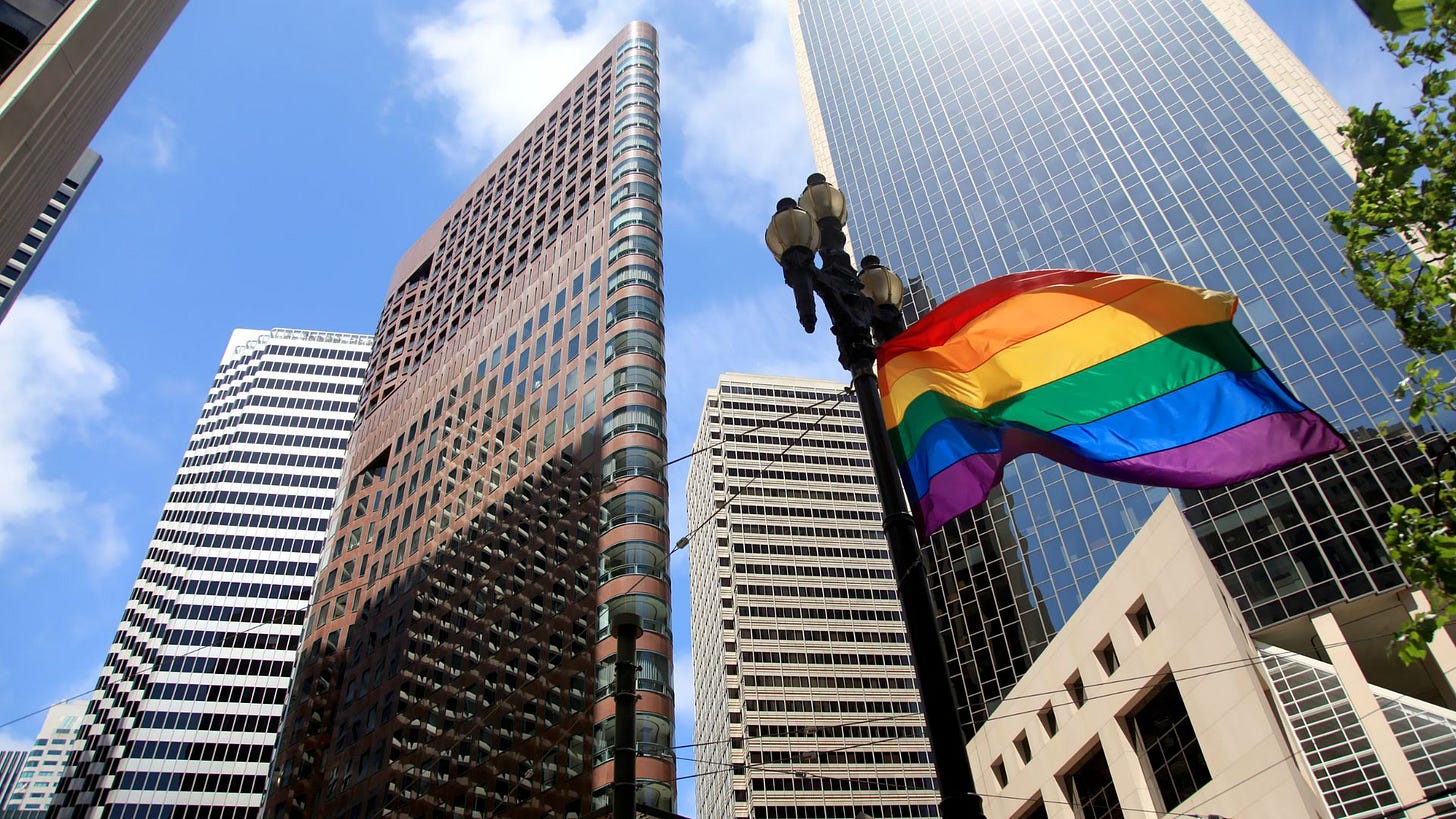How Pride Went Global—and Got Hijacked by Corporations
From Johannesburg to Berlin, Pride has gone global—but at what cost?

The rainbow capitalism booth sat exactly where the police barricades used to be.
I stood there, Diet Coke sweating in my hand, watching a Fortune 500 company hand out branded fans to queers wilting in the June heat. The irony tasted metallic. This same corner—I'd checked the old protest photos—was where cops had corralled marchers in '73, where blood had mixed with glitter on asphalt. Now it hosted a corporate photo booth where you could overlay rainbow filters on your selfies.
"Get your free Pride swag!" chirped a brand ambassador whose pronoun pin looked fresh from its packaging. Behind her, a banner proclaimed the company's "unwavering commitment to LGBTQ+ equality." The same company that, I'd learned from a quick Google search that morning, donated to politicians voting against our healthcare rights.
Something clenched in my chest—not quite rage, not quite grief. More like the disorientation of finding your childhood home converted…


